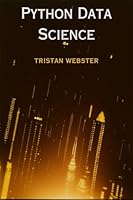
Logics for Computer Science: Classical and Non-Classical
- Length: 535 pages
- Edition: 1st ed. 2018
- Language: English
- Publisher: Springer
- Publication Date: 2018-09-28
- ISBN-10: 3319925903
- ISBN-13: 9783319925905
- Sales Rank: #1807661 (See Top 100 Books)
Providing an in-depth introduction to fundamental classical and non-classical logics, this textbook offers a comprehensive survey of logics for computer scientists. Logics for Computer Science contains intuitive introductory chapters explaining the need for logical investigations, motivations for different types of logics and some of their history. They are followed by strict formal approach chapters. All chapters contain many detailed examples explaining each of the introduced notions and definitions, well chosen sets of exercises with carefully written solutions, and sets of homework.
While many logic books are available, they were written by logicians for logicians, not for computer scientists. They usually choose one particular way of presenting the material and use a specialized language. Logics for Computer Science discusses Gentzen as well as Hilbert formalizations, first order theories, the Hilbert Program, Godel’s first and second incompleteness theorems and their proofs. It also introduces and discusses some many valued logics, modal logics and introduces algebraic models for classical, intuitionistic, and modal S4 and S5 logics.
The theory of computation is based on concepts defined by logicians and mathematicians. Logic plays a fundamental role in computer science, and this book explains the basic theorems, as well as different techniques of proving them in classical and some non-classical logics. Important applications derived from concepts of logic for computer technology include Artificial Intelligence and Software Engineering. In addition to Computer Science, this book may also find an audience in mathematics and philosophy courses, and some of the chapters are also useful for a course in Artificial Intelligence.
Table of Contents
Chapter 1 Introduction: Paradoxes And Puzzels
Chapter 2 Introduction To Classical Logic
Chapter 3 Propositional Semantics: Classical And Many Valued
Chapter 4 General Proof Systems: Syntax And Semantics
Chapter 5 Hilbert Proof Systems Completeness Of Classicalpropositional Logic
Chapter 6 Automated Proof Systems Completeness Of Classical Propositional Logic
Chapter 7 Introduction To Intuitionistic And Modal Logics
Chapter 8 Classical Predicate Semantics And Proof Systems
Chapter 9 Hilbert Proof Systems Completeness Of Classicalpredicate Logic
Chapter 10 Predicate Automated Proof Systems Completeness Ofclassical Predicate Logic
Chapter 11 Formal Theories And Gödel Theorems







